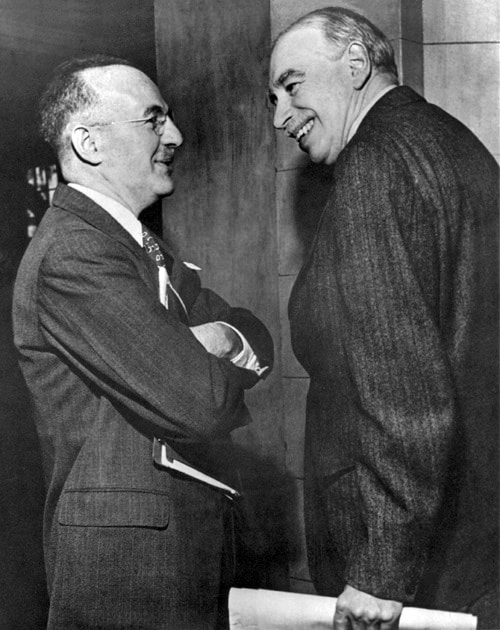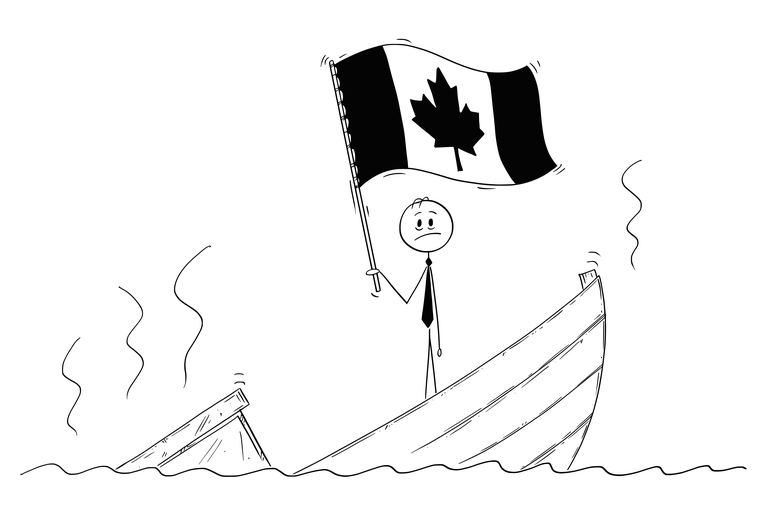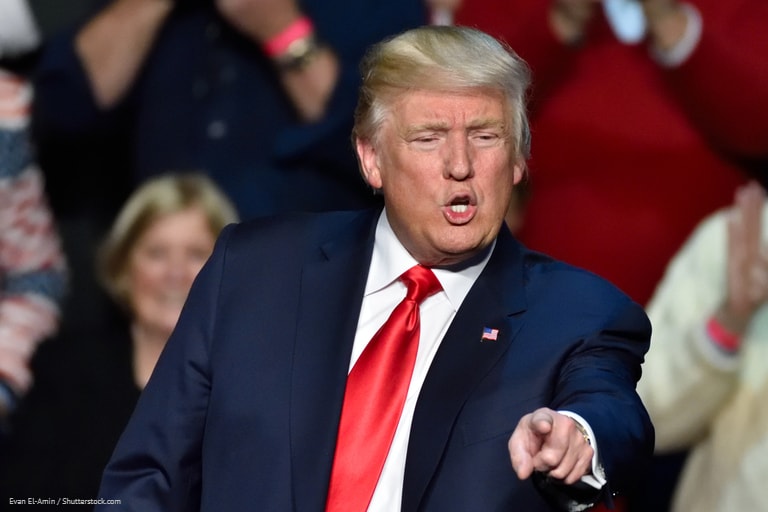By Aly Kamadia, Editor-In-Chief of iDose
The masterful economist and shrewd British Statesman, John Maynard Keynes, once remarked:
Practical men, who believe themselves to be quite exempt from any intellectual influence, are usually the slaves of some defunct economist.
One didn’t need to look further than many of the day’s political capitals to witness politicians in the very shackles that Keynes alluded to.

Upon inspecting the minds of politicians who were often labelled as experts in economics and policy, recycled and discredited thinking were waiting to greet anyone who inquired.
Thus it was of no surprise that, whether wearing Conservative or Liberal stripes, the most recent four decades of Canadian political ‘leadership’ did nothing to stop the march of an evitable form of ‘globalization’. On the contrary, in the 1980’s, Canada had welcomed a particularly radical brand of neoliberal ‘globalization’ that would eventually create the conditions that were bringing many Western democracies to their knees (e.g. the 2008 financial crisis; the retreat of democracies and rise of worldwide authoritarianism)
Despite the unwise move to hug a form of ‘globalization’ that was largely a servant of the super rich, the perception that Canada was naturally defined by a strong sense of morality (e.g. in terms of its alleged ‘natural’ diversity) carried some international weight. Most recently, Celebrity Prime Minister Justin Trudeau and his team had successfully delivered an image of a multi-cultural heaven to foreigners.
Examples of Canadian allies promoting this distorted image weren’t hard to find. How could a neighboring America under the Presidency of a bigot (who later demonstrated that he had no problem with locking babies in cages) resist the image of a good looking Canadian Prime Minister welcoming Syrian refugees? (For Canadians so obsessed with immigration that they judged a leader on this issue alone, one would have expected them to be showering an abundance of unfettered praise upon the Germans. Though I suspected they didn’t know what the German flag looked like).
Well before Trump’s victory, how could media outlets resist the image of Trudeau quipping, when asked why his incoming cabinet would be gender-neutral, “Because it’s 2015”?
Indeed, many people outside its borders wanted to be more like Canada – often for justified reasons, though also often due to delusions.
Those very delusions were quick to dissipate after a hostile 2019 election revealed the myth of Canadian exceptionalism (which, despite its different nature, was as much of a myth as American exceptionalism, and the exceptionalisms that countless countries included in their feel-good political rhetoric). Examples of a few questions illustrated the point nicely.

Why didn’t the party with the most votes in Canada receive the most seats and representation in Parliament?
Because, to borrow Trudeau’s phrase, it was 2019.
(This author was absolutely no fan of Andrew Scheer).
If Canada was some multi-cultural heaven, how did a party that was running on a platform of Sovereignty, who wished to fully separate itself from Canada as a country, win the third largest amount of seats in Parliament?
Because it was 2019.
How did the victorious Liberal party fail to secure even one seat in both the entire provinces of Alberta and Saskatchewan?
Because it was 2019.
Or, moving beyond the election, we might have asked:
Why was nearly half of the Canadian population only $200 away from financial insolvency come month end?
Because it was 2019.
In a country endowed with so many natural resources, and the massive wealth of the super rich, how were one in seven Canadians living in poverty?
Because it was 2019.
Every historian knew that the Europeans committed genocide while conquering the Americas (a cruel example of realpolitik). Given that Canada’s Indigenous people were the victims of all sorts of atrocities, why were they still so victimized (to put it euphemistically)?
Because it was 2019.
Why was an Indigenous Member of Parliament willing to publically swear in the very institution that represented Canadian democracy? Was the NDP member not aware that he was swearing directly at Mr. Diversity? (See parliamentary video below at your discretion due to language)
Verbally beating up Trudeau with logic and evidence was sometimes necessary though nonetheless child’s play – it didn’t demand the slightest intellectual rigor. And an exclusive focus on the Celebrity Prime Minister left out the many other politicians in the circus. To see what some of the provinces premiers were doing was to witness the very intellectual slavery Keynes spoke of, though presented in different wrapping paper.
Thus when Premiers Doug Ford and Jason Kenney slashed some much needed spending in Ontario and Alberta, they did so in the name of ‘austerity’ – part of a radical neoliberal doctrine whose intellectual authors I’d have wagered neither of the Premiers had ever read.
Though one needn’t have read such obsolete thinking, nor have been exposed to the ever so rare and gifted mind of John Maynard Keynes (who certainly wasn’t correct on everything – he was only human after all), to see that many Western economies were simply rigged.
Serious scholars (some very eminent) had been noting it for decades. Bernie Sanders and Elizabeth Warren were hardly the only ones shouting ‘the system is rigged’ at the top of their lungs. (One could certainly admire them for using their massive platforms in the most ethical fashion – an extremely rare treat in the political world).

Some might have responded by automatically emphasizing noteworthy differences between Canada and the United States. Though to do so was to miss the message being shouted by democracies in many parts of the world:
If some of Canada’s political elite continued to poke away at the dignity and well being of its middle class and the poor, the country would keep moving in the direction of the not-so-United-States and not-so-United-Kingdom. It would risk falling into one of the traps of the various forms of authoritarianism that were emerging; none of which the false prophets of neoliberal ‘Globalization’ forecasted while singing its praise throughout the decades.
Thus the question: Why did many of Canada’s political elite need to stop parroting outdated thinking and start UNrigging an economy that was assaulting too many?
Simple.
Because it was 2019.
Aly Kamadia is Editor-In-Chief of iDose. To read more articles by Kamadia, click here. To read the Editor’s message, click here.
Note: The views expressed in this article are the author/s, and not the position of Intellectual Dose, or iDose (its online publication). iDose reserves all rights, unless stated otherwise. [print-me]



